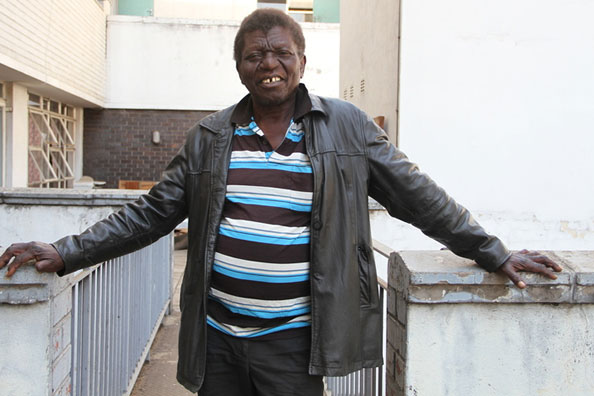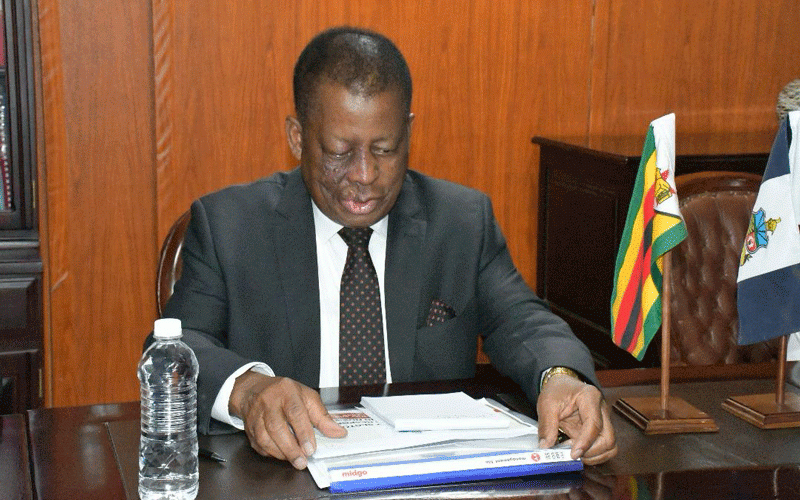
AConstable Chikwinji stopped me at a police roadblock as I was driving to Mutare. She told me that I had no reflectors on my car and that I should pay a spot fine of $20 which I did not have. Besides, my car did have reflectors built in the lights. She did not listen to any of my pleas and asked me to park my car on the side of the road until I forked out the $20. She later took my identity card and told me to go to Rusape Police Station and wait for her. I was parked at the police station for over one hour but she made no appearance. After the hour, I had a sudden brain wave. Instead of just waiting in vain for Chikwinji to appear, I decided to go to Vhengere Township to see if I could find an old music friend, Patrick Mukwamba. However, as someone who did not know his address, I thought I could use his “popularity” to find him. Out of 10 or so people I asked, only one said he knew him but did not know where he lived. He also said that he had not seen him for several months. At that juncture, I gave up the search and proceeded to Mutare after I realised Chikwinji was not going to turn up. She still has my identity card.
Fred Zindi
The reason I had wanted to see Mukwamba was to find out about his latest release, Please Call Me Back and how it was doing on the market.
Mukwamba gained popularity during his short stint with the Four Brothers between 1983 and 1984 when he released the classical hit, Jonasi (Wapenga ne Bonus). This song was a Christmas hit as it described how Jonasi foolishly spent his bonus earned from work. Another of his compositions, Tonosangana Ikoko made the Four Brothers a very popular band.
Starting from the late ’60s with the Carnations Band, Mukwamba has been a nomadic artist, linking up with several groups over the years.
He moved from the Pop Settlers band based in Mutare in the late 1960’s to Tanganda Tycoons, then Rollicking Band based in Victoria Falls before leaving for Mhangura Mine to replace Thomas Mapfumo as the lead vocalist for Hallelujah Chicken Run Band. He later joined the Seasons Band before leaving his Chitungwiza house to settle in Rusape.
However, it was during his stint with the Four Brothers that Mukwamba made his biggest impact. He wrote many songs during this time. Unfortunately, Marshall Munhumumwe, the drummer in the Four Brothers, could also sing and whenever the band was invited overseas, they would leave Mukwamba behind and got Munhumumwe to sing Mukwamba’s songs.
- Chamisa under fire over US$120K donation
- Mavhunga puts DeMbare into Chibuku quarterfinals
- Pension funds bet on Cabora Bassa oilfields
- Councils defy govt fire tender directive
Keep Reading
Mukwamba was very bitter about this as he claimed Four Brothers travelled overseas on the popularity of his songs. According to him in an earlier interview, “Marshall told the promoters that he could sing each and every one of my compositions and hence there was no need for me to be part of the travelling team,” he said.
But this is not to say the Four Brothers did not have their own compositions. Their well-known composition Makorokoto was written by Munhumumwe and was the hit during their debut European tour in 1986 together with a string of recordings such as Sara Ugarike, Adiwa Usamuzvonde and Rugare.
The name Four Brothers was a coincidence. The four musicians — Alex Chipaika-Phiri who played guitar, Munhumumwe (who was the nephew of Mapfumo, who played drums and sang), Edward Matigasi-Ulaya, another guitarist and bassist Never Mutare who formed the band in 1977 — were not related at all.
After leaving their individual bands in 1977, these four musicians joined together to do one song Mandega at Shed Studio. The producer, Chrispen Matema who worked for Teal Record Company then, asked the four musicians to provide him with the label information at the end of the recording. They failed to come up with a name for the group.
Matema decided to call them the Four Brothers, arguing that he could not release the record unless he had a collective name for the musicians who had recorded it. That was meant to be a temporary name but when the record came out, it made such a great impact that the four musicians decided to form a permanent band and the name Four Brothers stuck. When Mukwamba joined them in 1983, they became known as Patrick Mukwamba and the Four Brothers. Together, they toured the whole country. They resorted to their original name when they started their overseas trips without Mukwamba.
After their European tour, equipped with new equipment from their overseas earnings, they wrote Rudo Imoto as Four Brothers. The song was a massive hit throughout the country and fans, wherever they went, would always demand that song. It was at this point that the band realised they did not need Mukwamba any more as Munhumumwe sang it beautifully. This is the stage at which Mukwamba’s fortunes began to slip away, and he is still bitter about it.
In Chinhoyi, at Cooksey Hall, during the Four Brothers’s performance one evening, Munhumumwe suddenly announced that they had finished playing. There was a near riot after the audience called for an encore. The crowd refused to leave the hall until the band played Rudo Imoto. They did and the crowd was appeased. One fan was overheard saying at the end of the show; “If they had not played that tune, I would have smashed their new instruments. I don’t care if I had ended up in jail.” That is how passionate their fans were.
It was during Mukwamba’s stay in Rusape that he wrote the song Usanyare Basa Raunoita to explain his present situation when he had gone into sculpture industry in order to make ends meet.
In the 22 years that he has been off-stage since his last gig at the 1994 Jenaguru Festival, Mukwamba has tried his hand at the sculpture industry and other means of earning a living.
Not many people in Rusape know that he was once a very popular star. His wife died in 2004 and he has lived a lonely life in Rusape.
lFeedback: [email protected]












